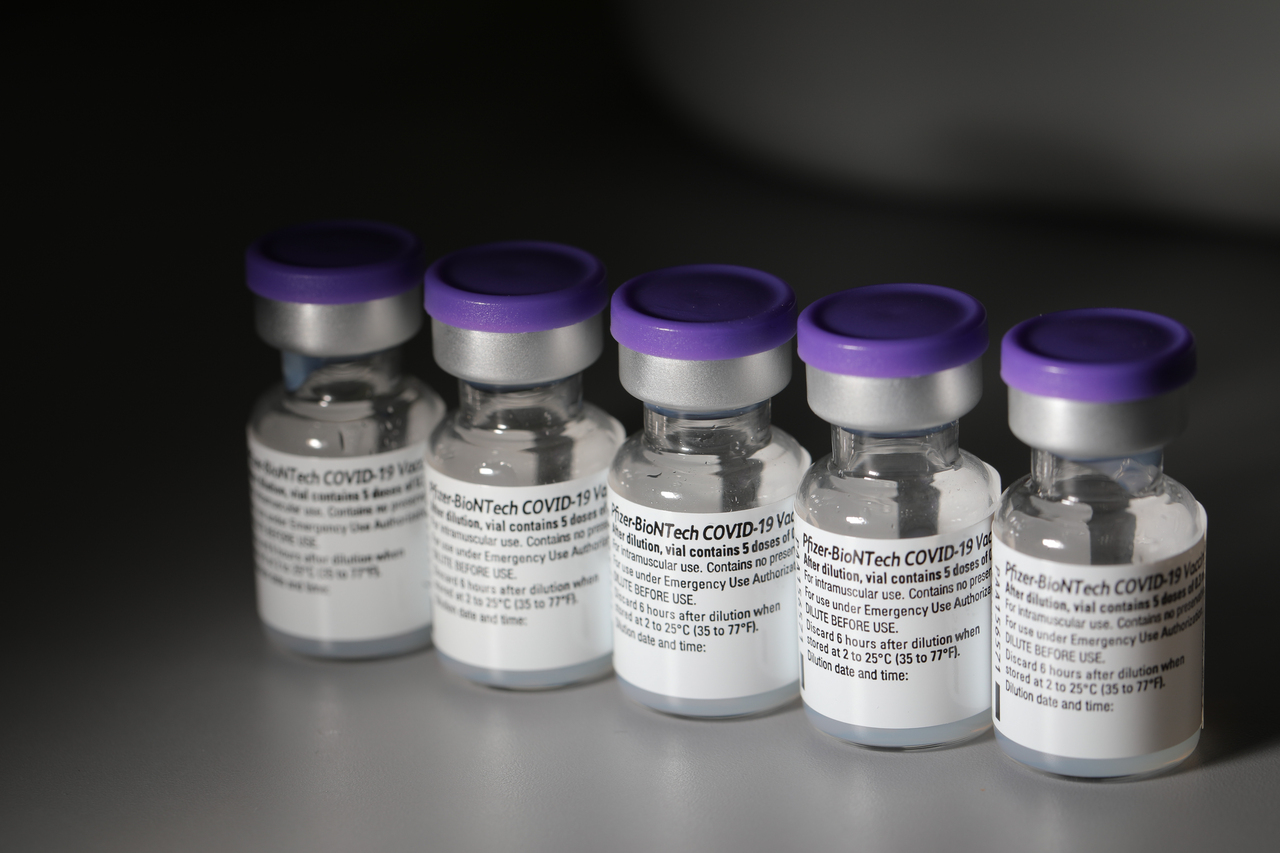Pfizer Covid-19 vaccine safe for teens, results consistent with those for adults: Kenneth Mak
Sign up now: Get ST's newsletters delivered to your inbox

The safety profile of the Pfizer-BioNTech vaccine was very similar to that of other vaccines normally offered to children, said Singapore director of medical services Kenneth Mak.
ST PHOTO: ONG WEE JIN
Follow topic:
SINGAPORE - The safety and efficacy of the Pfizer-BioNTech Covid-19 vaccine among those aged 12 to 16 years have been found to be consistent with the results reported in the adult vaccinated population.
Based on the ongoing phase three studies that involve nearly 2,300 adolescents between the ages of 12 and 16, there was a very high vaccine efficacy in the vaccinated group, Singapore director of medical services Kenneth Mak said in a virtual multi-ministry task force press conference on Monday (May 31).
There were no Covid-19 infections being reported in this group compared with the 16 cases of infection in the unvaccinated control group, Associate Professor Mak said. "And this is a result consistent with the results reported in the adult vaccinated population."
The safety analysis from the study also showed that within the period of follow-up, which was at least two months, adverse effects were not common, and were generally mild. The safety profile of the Pfizer-BioNTech vaccine was, in fact, very similar to that of other vaccines normally offered to children, Prof Mak added.
"Children generally have a stronger immune system compared to adults, and they may experience a slightly higher incidence of minor effects like fever, injection site pain, tiredness, and headaches compared to adults. And this is common... for children from all types of vaccines that they receive, not just the Pfizer vaccine," said Prof Mak.
"These reactions will resolve within an average of one to two days. In fact, these reactions demonstrate that their immune system is functioning well and responding to the vaccines."
Hence, Ministry of Health is confident that the vaccination can be offered to those between 12 and 16 years, protecting them from getting infected, though it may not prevent all infections.
This is the same position adopted by other countries, such as the US, where more than six million between the ages of 12 and 18 have been vaccinated since approval was granted by the US Food and Drug Administration, Prof Mak said.
"We'll be watching very closely the experience of others, in the US, in Israel, and it will guide our policy even as we start our own programme to offer vaccinations to our schoolchildren."
Vaccinating children also carries the secondary benefit of reducing the risk that others within the same household will be exposed to and infected with the virus, Prof Mak said.
Children with a history of depression or anxiety should be first assessed by their doctors to ensure that the condition is stable before vaccination, he said.

